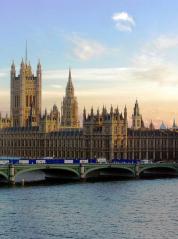London Councils has commissioned annual polling since 2020 to build our understanding of public awareness of, and attitudes to, the issues arising from climate change. This briefing summarises the key findings from the 2023 survey, conducted by Kantar.
Key Findings
- Concern about climate change remains consistently high among Londoners and the level of concern is growing – 84% of Londoners said they were concerned about climate change and 68% said their level of concern has increased over the past 12 months.
- Londoners are highly motivated to tackle climate change – The vast majority of Londoners (90%) are motivated to help prevent climate change and motivation is high across all age groups, social grades and across the capital.
- The cost-of-living crisis is preventing Londoners from taking action on climate change –Nearly three quarters (73%) of Londoners think the cost-of-living crisis has made it more difficult for them to take action to help prevent climate change. At the same time, 60% of Londoners say the cost-of-living crisis motivates them to do more on climate change if it also helps to reduce their costs.
- Londoners are already undertaking a lot of sustainable behaviours, from commuting by public transport, to insulating their homes, however they also report a number of barriers to taking action to tackle climate change.
- Many Londoners find the cost of investing in energy-saving and money-saving measures too high – Nearly a quarter of respondents (23%) who had not already implemented energy saving methods said it was too expensive to pay to insulate their homes. 29% of those who hadn’t implemented energy saving methods said it was too expensive to replace gas heating with a lower carbon option, such as heat pump or electric storage heaters, while 34% said it was too expensive to install solar panels at home. Cost is also considered the main barrier when it comes to purchasing a greener vehicle, such as a hybrid or an electric car.
- Preference is a key barrier for making other sustainable choices such as reducing meat intake, walking and cycling more, using public transport, and buying second hand clothes.
- Over half of Londoners have been impacted by climate change - 60% of Londoners say their day-to-day life in London has been impacted by the changing climate. This has increased from 2020 and 2021.
Please find a full summary of the survey’s findings here. A sample of 1,001 London adults aged 16+ were interviewed and the sample has been weighted to represent the adult population of London 16+. The polling was completed 1st September to 6th September 2023.
London boroughs are responding to climate change
Every London borough has published a Climate Action Plan setting out how they will meet ambitious targets for their own estate and drive carbon reductions across their borough. Examples of how London boroughs are supporting the transition to net zero include:
- EV charging rollout – London is leading the way in the electric revolution, with the most recent data from Zapmap (August 2023) showing that London hosts more than 14,000 public charging points, a third of the UK’s total, and a 27 per cent increase from August 2022.
- Decarbonising council buildings and social housing – Nearly every London borough has adopted a target date for reducing carbon emissions from their own estate and operations, with the majority aiming for net zero emissions by 2030. 2,023 households in London were upgraded (with at least one energy improvement measure installed) during Wave 1 of the Social Housing Decarbonisation Fund.
London Councils is supporting transformative collaboration through its climate change programme
London boroughs have recently invested £2 million in the next phase of London Councils’ Climate Programme, accelerating local government’s collaborative work to address climate change. This will enable London boroughs to work better together to reduce carbon emissions, delivering net zero faster and more efficiently while improving air quality and enhancing economic and health benefits across the capital.
You can find out more about our Climate Programme here.
London Councils’ key asks of the government
- Simplify the net zero funding landscape and processes for all local authorities (as recommended by the Skidmore Review), to reduce costs, improve efficiency and value for money for taxpayers.
- Provide regionally devolved funding for retrofitting/low carbon delivery to London, mimicking the trailblazer style devolution settlements in the Greater Manchester Combined Authority and West Midlands Combined Authority.
- Publish a high-level framework which recognises and clearly defines the roles and responsibilities of local government in reaching net zero.
- Increase the amount of net zero funding and finance available to local authorities and give them more control over spending to support strategic local delivery. The government should also make long-term commitments (at least three years) to future funding programmes to provide certainty for suppliers, skills providers, and employers.

